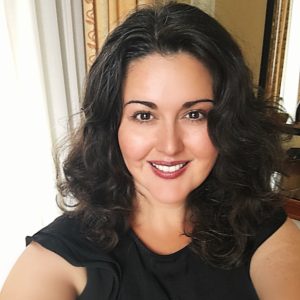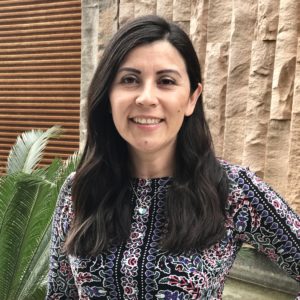Alycia de Mesa is elated.
An instructor in the School of Sustainability at Arizona State University, she and her colleague Maria Coca Ascencio, a graduate of the Executive Master of Sustainability Leadership program, have recently been voted on to the executive board of the ASU Chicano/Latino Faculty & Staff Association (CLFSA) for leadership positions. De Mesa is serving as president-elect and Coca Ascencio is secretary of the association.
Founded in 1970, the CLFSA is an organization that “supports and advocates for Chicanos and Latinos at ASU by educating university administrators, faculty, staff and students on the policies, issues and challenges that affect the community.”
“I'm truly honored to serve as the president-elect of ASU CLFSA,” de Mesa said. “I hope that through servant leadership, I can support my LatinX brothers and sisters here at ASU and do what I can to encourage and support leadership academically and professionally.”
Coca Ascencio expressed a similar sentiment: “I love serving in the executive board of CLFSA and feel honored to be part of a cohort of leaders who are passionate about all things LatinX — but in particular about advancing, advocating, and elevating the Latino community at ASU.”
In addition to performing their roles, both de Mesa and Coca Ascencio hope to use their positions to highlight an important yet often missed issue: the underrepresentation of members of the Latino community in faculty.
According to a 2017 analysis by the National Center for Education Statistics, Hispanic women and men made up just 6% of full-time faculty at universities in the United States. In Arizona, this number is particularly underwhelming considering Arizona’s population is 31% Hispanic — the sixth largest Hispanic population in the nation. This glaring disparity in the representation among faculty versus the representation among the general population leaves a big hole that needs to be filled.
“I think back on my own education and had very few teachers who reflected any of my heritage,” de Mesa said. “Representation has been and continues to be an issue.”
De Mesa grew up in a Spanish-speaking household with a Japanese-American grandmother and a Mexican-American and Native grandfather. A second-generation Sun Devil, she’s the first in her family to teach at the university level and the first to pursue a doctoral degree with ASU.
“My grandfather was very proud of his Mexican heritage,” de Mesa said. “Serving CLFSA is for me a way to honor him and our family.”
To increase LatinX representation, both de Mesa and Coca Ascencio emphasized the importance of “intentionality.” Coca Ascencio, who is currently an ASU Academic Senate Manager, said: “Diversity and inclusion must be planned. The current system in place does not allow for organic inclusion of ‘others.’ Therefore, if we want to increase LatinX representation we must be intentional about it.”
De Mesa agreed.
“Personally, I believe more recruiting, mentoring, support and training are what is needed to increase our LatinX faculty representation across all schools,” she said. “Of course, this also starts with encouraging and supporting LatinX students to pursue graduate school pathways and to consider how they can contribute their own knowledge and leadership to academia.”
In regards to that last point, ASU has made great strides in encouraging its Latino students. It was one of nine institutions to earn the 2019 Seal of Excelencia, which recognizes an institution’s very high level of commitment and effort to serve Latino students successfully. But as the statistics show, there is a lot left to be done.
Top photo: Alycia de Mesa

